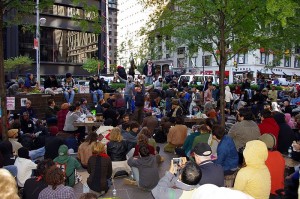Movement

Bio: Erika Totten is a leader in the Black Lives Matter movement in Washington, D.C., and the black liberation movement at large. She is a former high school English literature teacher, a wife, a stay-at-home mom, and an advocate for the radical healing and self-care of black people through “emotional emancipation circles.”
1. How did you get started with “emotional emancipation” work?
Emotional emancipation circles were created in partnership with The Association of Black Psychologists and the Community Healing Network. I was blessed to be one of the first people trained in D.C. I had been doing this work before I knew what it was called. My organization is called “Unchained.” It is liberation work—psychologically, mentally, spiritually, and emotionally.
I want to tell people to be intentional about self-care. Recently, we had a black trans teen, who was an activist, commit suicide. A lot of times you need to see a counselor or therapist, which is often shunned in the black community. Because of racism, we are taught that we need to be “strong.” But it’s costing us our lives. As much as we are dismantling systems, we have to dismantle anything within ourselves that is keeping us from experiencing liberation right now.

AS POPE FRANCIS prepares to release his encyclical on climate change, it’s worth remembering exactly how far the conversation on religion and the environment has come in the past quarter-century.
When I wrote The End of Nature back in the late 1980s, there was very little religious environmentalism. Liberal churches believed that ecology was a subject to be addressed once you’d finished with war and poverty; conservative churches viewed it as a way station on the road to paganism. And Christians in general still reeled under the idea, propounded by Lynn White in an influential essay in Science magazine, that the Genesis call for dominion had led directly to the destruction we saw around us.
In those early days, there were a few wayfarers on this path. Thomas Berry, for instance, and even more important a pair of academics—Mary Evelyn Tucker and John Grim—who picked up his clues and sweated blood to assemble theologians from around the world and search every tradition for the roots of ecological thinking. Episcopal Power and Light—now Interfaith Power and Light—was an early and successful effort at congregational action; Shomrei Adamah (Guardians of the Earth) was an early effort in the Jewish community that has blossomed into many flowers.
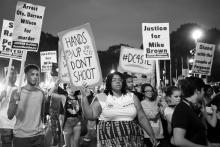
ON AUG. 9, Michael Brown, an unarmed black teenager, was shot to death by Ferguson, Mo., police officer Darren Wilson. A collective groan was let out across social networks—people began the lament “Not again.”
Just four days prior, John Crawford III, a 21-year-old black man, had been gunned down by police in a Walmart in suburban Dayton, Ohio, without warning, while shopping for a BB gun. A few weeks earlier, Eric Garner, an African-American man, was choked to death by a New York City police officer.
For young black men, each incident is a reminder of how easily our lives can be taken away by police aggression. For the people in Ferguson, however, over-policing is all too familiar. In a city where 67 percent of the residents are black, there are only three black police officers on a force of 53.
A 2013 report from the Missouri attorney general’s office revealed just how bad relations are between officers and black citizens. Out of the 5,384 traffic stops made last year by the Ferguson Police Department, 86 percent of them targeted black drivers. Black drivers were searched and arrested at nearly twice the rate of white drivers, although contraband was found at a rate 13 percent less than that of white drivers.
IN JUNE, SOJOURNERS decided to take part in a little experiment. What would happen if 300 faith and social justice leaders gathered together for a few days to discuss some of the most pressing issues of our time? Our first ever Summit, under the leadership of chief strategy officer Timothy King, had as its tagline: “World Change through Faith and Justice.” Only time will tell how this experiment will play out in the long run, but in the short term I would consider it a great success.
Held over four days in June at Georgetown University in Washington, D.C., the conference brought together 296 leaders from churches, faith-based organizations, NGOs, media outlets, business, and politics. Fifty-three percent of attendees were female, and half were people of color; they were drawn from a wide range of Christian and other religious and spiritual backgrounds.
On the first night, when I saw who was there, I knew the Summit was going to be a powerful and wonderful time. Some participants were local Washingtonians. Others came from as far away as Ethiopia to attend. The group included icons of the social justice movement such as Ron Sider, Marie Dennis, Yvonne Delk, Otis Moss Jr., and Tony Campolo as well as newer leaders such as Otis Moss III, Rachel Marie Stone, and Daniel Varghese, a Georgetown undergraduate who celebrated the Summit’s “radical egalitarianism.” As Timothy King mentioned in our opening session, the group looked a lot like the kingdom of God!
1. Awakening:
It is impossible to build a transformative movement for justice if people remain in the dark about the magnitude of the crisis at hand, its origins, and its racial, economic, and political dimensions. I wrote The New Jim Crowbecause I strongly suspected that most people simply had no idea what was really going on and that education was a necessary prerequisite to effective action. I still believe that’s the case, and so urging people of faith and conscience to commit themselves to raising the consciousness of their congregations and communities is extremely important.
Encourage people to hold study groups, film screenings, public forums, and dialogues to help others awaken to what has happened on our watch and become motivated to join the movement. The Unitarian Universalists, the Samuel DeWitt Proctor Conference, Veterans of Hope, and PICO are all engaged in consciousness-raising work and have created study guides based on The New Jim Crow and other resources.
2. Building an Underground Railroad:
Obviously, consciousness-raising is not enough—we will have to get to work. In my view, that necessarily involves building an “underground railroad” for people trying to make a break for true freedom in the era of mass incarceration and who desperately need help finding shelter, food, work, and reunification with their families.
On Feb. 8, tens of thousands of people gathered in the North Carolina capital city, Raleigh, for what organizers called the Moral March. It was a follow-up to last year’s “Moral Monday” movement that started in April 2013 when Rev. William Barber II, president of the North Carolina NAACP, and 16 others were arrested inside the North Carolina legislature for protesting sweeping voting restrictions proposed by the Republican-controlled state government.
I ALMOST DIDN’T go to the Moral March. I kept looking for excuses. There was all that work to be done for next week. I told my professor I’d miss Friday’s preaching class. I hoped she’d chide me and I’d feel guilty enough to stay. Instead she said, “Great, go with my blessing.” I told my tutor I’d miss tutorial. She said, “I’m so glad you’re going to the march.”
Why couldn’t I go to a normal graduate school where no one left their rooms? But instead I went to seminary, and to Union, of all places!
I said, God, I’m crazy to go. Mild laughter was the only response. I glared at my reflection in the dark window. The reflection raised her eyebrow and said, don’t be left behind now.
The little voice in the window stayed with me as I put an extra pair of thick socks in my bag. Don’t be left behind, reading books about other people’s marches and other people’s spiritual revelations and other people’s religions. This march is historic, my reflection informed me. Go and be part of history. This is your history.
This is your time.
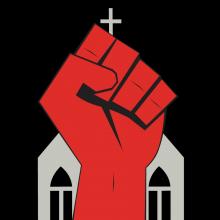
Religious historians say that every 500 years, Christianity goes through a “massive transition,” as noted religion writer Phyllis Tickle puts it.
Around 500 A.D., “barbarians” sought to subjugate Rome by wiping out its underlying religion. Christianity went underground. In abbeys like Iona, monks painstakingly copied Scripture and civilization’s great writings, in effect saving Western civilization itself.
Around 1000 A.D. came the “Great Schism,” when the Western church based in Rome and the Eastern church based in Constantinople fought over creeds and doctrine, political power and cultural hegemony. That split endures to this day between Eastern Orthodoxy and Catholicism.
Around 1500 A.D. came the Protestant Reformation, when nationalism born of exploration in the New World and new commercial wealth demanded an end to Rome’s domination of European life. That split, too, endures.
Now comes a new millennium, and Christianity wears so many different faces that it’s difficult to speak of a single “Christian movement.”
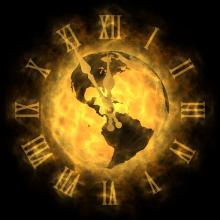
A RECENT RETREAT of evangelical environmentalists raised this theological question: Should we have expected most people in the developed world to hear the scientific evidence proving the great dangers of climate change and then decide to quickly change themselves—their view of the world, their lifestyles and politics—and to withdraw their support from the fossil fuel economy that is threatening the planet and its people?
Those of us gathered at the retreat didn't think so. We human beings just aren't that smart, wise, good, or unselfish. It's more human to deny the evidence, attack the messengers, delay the response, and just hope everything works out. That's what many have done. And since our political system is even more dysfunctional than most of the people it represents—and is bought and paid for by the gas and oil interests that control the economy—the chances are low for courageous and far-sighted leadership.
So what kind of wake-up call will it take to reduce the carbon emissions we humans create, which are warming the earth's temperature and endangering our future in increasingly dramatic ways? Perhaps it will take disruption and devastation—which is becoming the "new normal." So-called once-in-a-lifetime storms are now becoming frequent, with Superstorm Sandy only the most recent example.
Sandy seemed to get people's attention in a way we haven't seen since the 2010 BP oil spill in the Gulf. It came in a year when the lower 48 states suffered the warmest temperatures and most disruptive weather patterns since such records have been kept. We're already spending billions in emergency aid for the victims of hurricanes and weather disasters; those numbers will only increase. In addition to Sandy, we had 10 other billion-dollar weather disasters in 2012, including Hurricane Isaac and terrible tornadoes across the Midwest and Great Plains.

I learned from an article in The Sun magazine that the word eccentric comes from a Greek word that describes objects in space that don't revolve around the earth. The Greeks in ancient times saw Venus, Mercury, Mars, Jupiter, and Saturn and observed that they wandered through the sky moving in a seemingly aimless way. They called these planets asteres planetai (wandering stars). The planets were not, however, wandering. They were revolving around the sun. It was the finite view of human beings that made them seem like wanderers.
Human eccentrics move in a seemingly aimless way, too. Their movements make them seem like wanderers to other human beings with finite views. They don't wander aimlessly, though. They revolve around a different center.
IN SPRING 1986, a group of Italian activists led by Carlo Petrini launched a protest against the opening of a McDonald’s near the famous Spanish Steps in Rome. This protest marked the origin of the Slow Food movement, which has spread over the last 26 years to more than 150 countries.
Following this Slow Food effort came a host of other Slow movements—Slow Cities, Slow Parenting, Slow Money, and more—that collectively raise opposition to the speed and industrialization of Western culture. Slow movements are beginning to recover what we have lost in our relentless pursuit of efficiency. Many Christians have been challenged by these Slow movements to consider the ways in which our faith has begun to move too fast as we make sacrifices to the gods of efficiency.
This quest has sparked a renewed interest in the joys of sharing life together in local congregations and has intensified into a growing conversation—rather than a movement—called Slow Church. Slowness itself is not a cardinal virtue of Slow Church, but rather a means of resisting the present-day powers of speed in order to be faithful church communities.
The biblical vision of God’s mission in the world is God’s reconciliation of all creation (see, for example, Colossians 1:15-23 and Isaiah 65:17-25). But too often we narrow the scope of our faith and ignore the massive damage that incurs. Some Christians reduce the faith to four easy steps to stay out of hell, others to a set of techniques for growing a large church, and still others to a political ideology (of the Right or the Left). Christianity has also been reduced by some to a feel-good spirituality that has little or no bearing on the rest of our lives or in the public square.
One of the highlights of the fall for me was undertaking a kind of Occupy Tourism. I was spending most of my time on the move, working to build the broad coalition that eventually won at least a temporary victory against the proposed Keystone XL pipeline from the tar sands of Alberta. In almost every city I visited, I tried to stop by the local encampment, in part because Occupiers were among our most reliable allies, and in part because it was so much fun.
I’ve gotten to speak through the human microphone in lower Manhattan and tour the D.C. campsite just a few blocks from the White House. But I’ve also gotten to sign the copies of my books in the library tent at Occupy Boston (a quiet tent, staffed by honest-to-God librarians from Boston Public Library, with everything arranged by subject). I even made it to foreign occupations—standing beneath a giant stone lion in the grand Vancouver encampment. Happiest occupation goes to San Luis Obispo, California, where I got a hug from a fellow with a huge “Free Hugs” sign. The most chic, not surprising, was Santa Fe, New Mexico, where they arranged not only a campfire for my talk, but a rising full moon in the desert sky.

I always notice something when speaking to a mostly secular audience. Many people have been so hurt or rejected by the bad religion in which they were raised or have encountered elsewhere over the course of their lives, and, quite understandably, they are skeptical and wary of the faith community. But when someone looks like a faith leader (this is where the ecclesial robe helps ) and says things that are different from what they expect or are used to, their response is one of gratitude and the moment becomes an opportunity for healing.
After I spoke Sunday and joined the circle around the White House, person after person came up to me to express their thanks or simply to talk.
My favorite comment of the day came from a woman who quietly whispered in my ear, "You make me almost want to be a Christian."
Occupy Wall Sreet, false idols and a moral economy. Breaking the cycle of poverty. Poorest poor in U.S. hits a new record: 1 in 15 people. As poverty deepens, giving to the poor declines. Arianna Huffington: Shakespeare, the Bible and America's shift into a punitive society. Peaceful Occupy Oakland march followed by late-night clashes.

Abuse at Afghan Prisons. How Catholic Conservatives could turn the GOP presidential race. OpEd: Jesus would not #OccupyWallStreet. OWS is "largely secular." Religious leaders see immigration as "God's Call." OpEd: Alabama new immigration law has unintended consequences. OpEd: Wall Street Worship. Could 2012 be the most ideological election in years? And much more.
Last week, Sojourners CEO, the Rev. Jim Wallis, visited with #OccupyWallStreet demonstrators in New York City. "As I listen to them, I recognize what I felt as a young student-activist in the late '60s and early '70s," Wallis said. "I just feel from them what I felt a long time ago, that we're part of something much bigger than us, much larger than us...The visceral feeling [here] is, 'This could really change things.'"
(+Video may contain coarse language+)
Indie music darling, Jeff Mangum, who rarely plays in public, surprised #OccupyWallStreet protesters in New York City earlier this week with an impromptu concert. A New Jersey singer-songwriter pens two songs for revolutions. And an order of Catholic nuns offer free mp3 downloads of a protest song inspired by the life of St. Francis of Assisi.
We've compiled a list of links where you can learn more about the genesis of the #OccupyWallStreet movement, including links to news reports, organizations involved in formenting the movement and local groups in every state where you can get involved close to home (if you don't live in Lower Manhattan.)
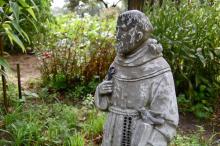
Today (Oct. 4) Christians around the world celebrate the life of St. Francis of Assisi, one of the bright lights of the church and one of the most venerated religious figures in history.
The life and witness of Francis is as relevant to the world we live in today as it was 900 years ago. He was one of the first critics of capitalism, one of the earliest Christian environmentalists, a sassy reformer of the church, and one of the classic conscientious objectors to war.
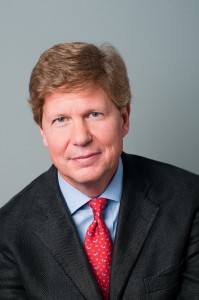 The puzzle here is not that readers of the Bible would tilt toward the political left. That, for me, as well as for thousands of other American evangelicals, is self-evident. Jesus, after all, summoned his followers to be peacemakers, to turn the other cheek, to welcome the stranger and to care for “the least of these.” He also expressed concern for the tiniest sparrow, a sentiment that should find some resonance in our environmental policies.
The puzzle here is not that readers of the Bible would tilt toward the political left. That, for me, as well as for thousands of other American evangelicals, is self-evident. Jesus, after all, summoned his followers to be peacemakers, to turn the other cheek, to welcome the stranger and to care for “the least of these.” He also expressed concern for the tiniest sparrow, a sentiment that should find some resonance in our environmental policies.
No, the real conundrum lies in the subtitle the editors of Christianity Today assigned to Franzen’s article, which was titled, “A Left-Leaning Text.” Adjacent to a picture of a Bible tilted about 45 degrees to the left, the editors added the subtitle: “Survey Surprise: Frequent Bible reading can turn you liberal (in some ways).”
The fact that anyone should register surprise that the Bible points toward the left should be the biggest surprise of all.

In his column last week, Sojourners chief Jim Wallis talked about his frustration with the perennial misuse of the word "evangelical" by various media to describe folks and ideas that, in his view, and that of many of us who self-describe as evangelicals, don't bear any resemblance to what we understand that term to actually mean.
Below is a compilation of recent media reports where the word "evangelical" is invoked. When you read these, evangelical brothers and sisters, do you recognize yourself in how the word is used and defined? Or does it ring false to you and your understanding of what "evangelical" really and truly means?
